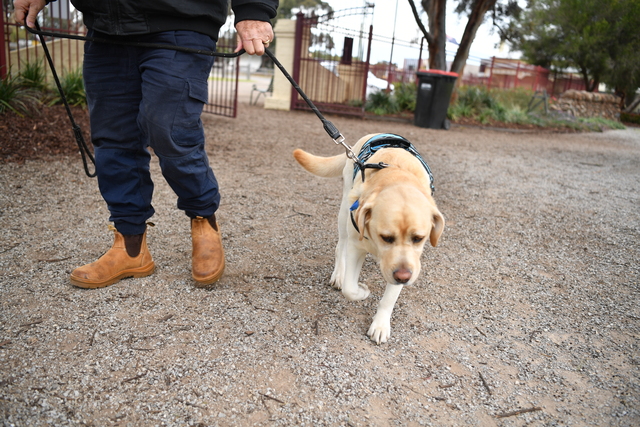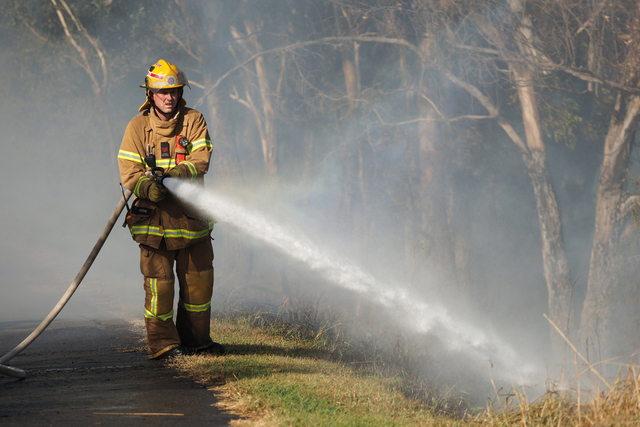Assistance dogs mean a lot to those who rely on the help of their furry friends.
And this is no exception for Mark*, a Melton resident and former police officer who suffers from post-traumatic stress disorder (PTSD).
Mark has taken his five-year-old labrador Molly to Melton Assistance Dogs for more than three years , something which he said has not only helped him with his condition but engage with the world again.
“I wouldn’t be getting out as much as I do. It gets you back into society – a lot of blokes with PTSD tend to stay home and that’s it,” he said.
Reflecting on International Assistance Dog Week, Mark said Molly had a number of ways to help him navigate the symptoms of his condition.
“If I’m having nightmares, she’ll jump on the bed and wake me up, or if I’m getting aggro she’ll stand between or in front of me,” he said.
“She can sense when I am [distressed] and put her head on my knee.”
There are a variety of reasons why people need assistance dogs, said Mark.
“There are a couple of ex-army and ex-police but… there’s quite a few [people] when you get down to it.”
Whatever the reason, the dogs are specifically trained to deal with their owner’s unique medical needs.
“Some can tell if you are about to have a fit or heart attack, alert you before it happens and get you to sit down before you pass out,” said Mark.
International Assistance Dog Week is designed to honour service dogs and their trainers who improve lives on a daily basis.
*Not his real name.







